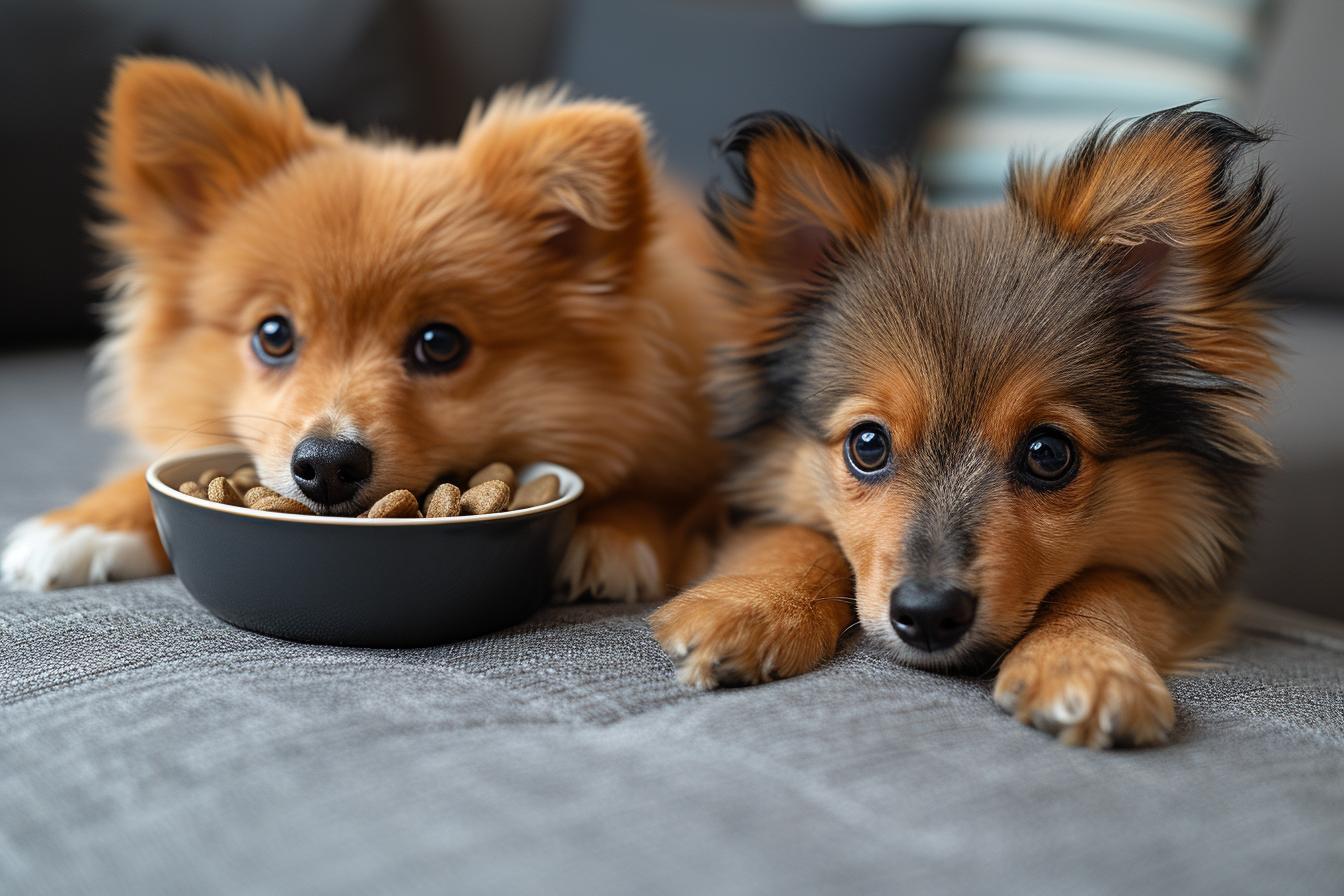Welcome, dear dog lovers! If you are the proud owner of a mischievous puppy, you have surely asked yourself the following question: “When should I replace puppy food with adult dog food?” This transition period is critical, as it paves the way for optimal health and proper growth for your dog. Nutrition plays a crucial role in the development of your furry friend, and it is essential to understand the differences between diets for young and adult canines, as well as the appropriate time for this essential change. In this detailed guide, we will explore why your bundle of fur initially needs puppy food, how to spot the signal to switch to a grown-up diet, and what strategy to implement to ensure a smooth transition. On your marks, get set, read!
The special nature of puppy food
Just as human infants have specific nutritional needs, puppies require a diet that is tailored to their developmental phase. On the one hand, puppy food is designed to be extremely rich in calories, proteins, and essential nutrients. This supports their rapid growth, the development of their bodies, and the strengthening of their immune system.
The caloric needs of young canines
A puppy has boundless energy and a growing body, which is why they require more energy, in the form of calories, compared to an adult dog. This increased energy demand must be met to ensure that your little companion grows up to be a healthy and energetic adult.
Promoting optimal health from the start
By adapting your puppy’s diet during these crucial months, you give them the best chances for optimal development. Puppy food contains specific proportions of calcium and phosphorus, for example, which are essential for strengthening bones and teeth.
The right time to introduce adult food
Although most dogs are no longer considered puppies at the age of one, the reality is that maturity varies by breed. Small breed dogs often reach maturity earlier than large or giant breed dogs, who may require puppy food until 18 months or more. The balance is delicate, as it is crucial to change the diet before the dog starts gaining excessive weight, which could lead to obesity or other health problems.
Identifying the end of your dog’s growth
The indicator that your puppy is ready for adult food is often their physical growth slowing down. It is highly likely that this change will occur well before their first birthday, especially in small breed dogs. Regular monitoring of your pet’s development is therefore essential.
The invaluable value of veterinary advice
Your veterinarian is your best ally in determining the precise timing of the change. They can provide you with a schedule tailored to your dog, based on their size, weight, health status, and activity level.
The gentle food transition
Switching directly from puppy food to adult food can cause digestive disturbances such as diarrhea or vomiting. It is therefore advisable to make the transition over several days, gradually mixing the two types of food until adult food completely replaces puppy food.
Avoiding gastrointestinal discomfort
To prevent the risk of digestive issues, the transition should ideally be spread over a week or more, gradually increasing the amount of adult food while decreasing the amount of puppy food.
The importance of a personalized plan
Your veterinarian can provide specific recommendations on the transition schedule, which will contribute to a smooth adaptation of your dog’s intestinal flora.
Monitoring and adjusting during the transition
Monitoring your pet’s weight is crucial during this period of change. It is an effective way to ensure that they do not gain weight unnecessarily and to adjust their portions if necessary.
Preventing canine overweight
Regular weight checks help to quickly detect any excessive weight gain and allow for adjustments in caloric intake before it becomes problematic.
Adjusting portions for optimal health
If you notice a weight variation, it may be necessary to adjust food portions. Again, your veterinarian can provide valuable advice on the appropriate amount of food for your dog based on their metabolism and activity level.
To conclude, it is essential to respect your dog’s growth stages and provide them with the appropriate food for each phase of their life. Nutrition is a cornerstone of your companion’s health, and a well-executed transition from puppy food to adult food is one of the most important aspects of their care. Remember to always consult your veterinarian for a diet tailored specifically to your four-legged friend, ensuring them a long, healthy, and happy life.







